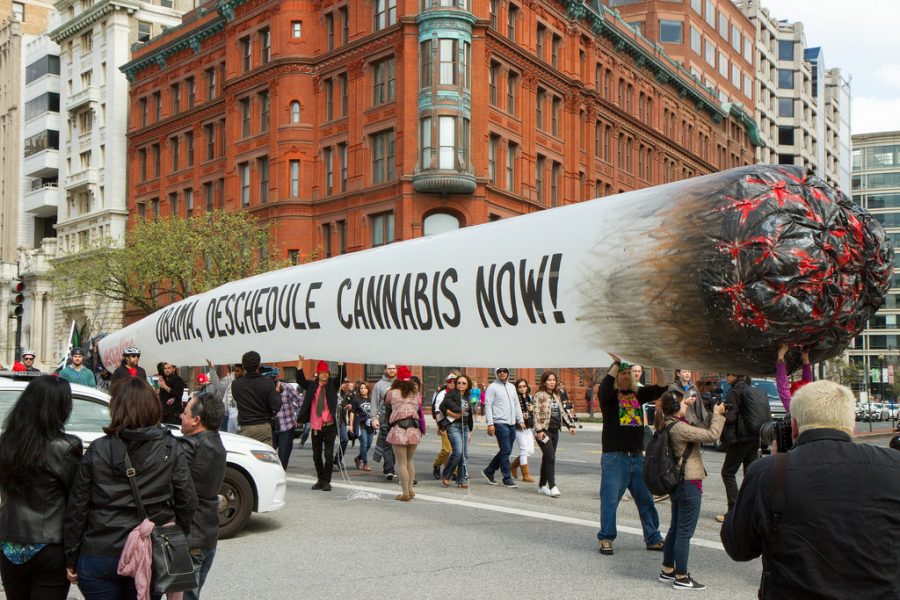In the midst of one of the most heated, controversial presidential elections in history, a rising movement quietly gained more traction. On Tuesday, November 8, 2016 as Donald J Trump became the presidential-elect, four states, California, Maine, Massachusetts, and Nevada, passed recreational initiatives on marijuana.
In addition, citizens in Arkansas, Florida, Montana and North Dakota voted to approve medical marijuana initiatives. This makes medical marijuana legal in 28 states and the District of Columbia, which means over half the country has legalized cannabis in one form or another.
We asked Lincoln East senior Sam Pella his opinion on the issues. He feels a change is needed here, stating, “As more states start to legalize it (marijuana), it’s going to take more security to stop it from coming in and out of states where it is illegal, costing us more money.”
Security is a big cost, but there are differing views from state to state. This has caused state patrols to stop and search more cars as they leave states, such as Colorado and Washington, with recreational initiatives. “I just think there is a better use for the state patrols’ time and resources,” commented Pella.
In a recent Nebraska poll, 51% of participants said they would support a law making medical marijuana legal under state law. 38% said they would vote against the law, and 11% remained neutral (Arlington Research Group). This is a big difference between the national support that a recent Harris Poll suggests that 81% of the United States population supports medical legalization, while only 13% voiced opinions against it (Lucas Organization). However, these numbers may seem deceiving since Nebraska has consistently and historically been a very conservative state.
But with nationwide legalization becoming more and more of a possibility, industries such as tobacco, alcohol, and prescription drugs are making moves to cash in. This ultimately raises the question: what will the future of marijuana be in this country?
Federal legality, rescheduling, and social acceptance all remain fuzzy and taboo topics. However, for supporters of legalization, the last two year have shown great indication of a “green light” towards the end of prohibition.
For more information on this topic and more, check out the print issue of the Oracle!


